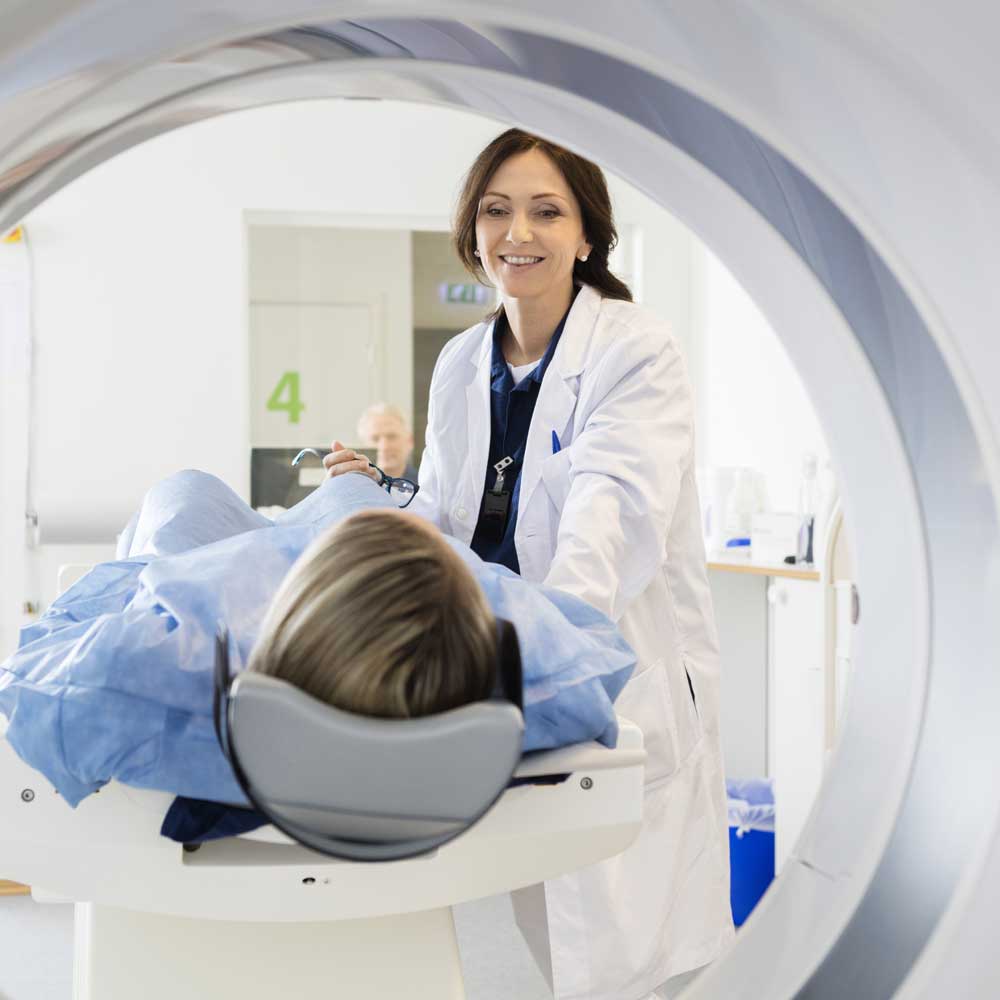
Until fairly recently, the best way to see “inside” the heart and the great vessels was to perform a cardiac catheterization, an invasive procedure that requires inserting a small tube (catheter) into the arm or leg and guiding it to the heart. This, along with some contrast dye and a special x-ray machine would allow you to see any blockages. The only problem is that it is a lengthy and invasive procedure.
Now there is a safer, non-invasive alternative. Thanks to constant technological advances a coronary CTA can now produce a highly accurate 3D image of the heart and the great vessels.
Coronary CTAA coronary CTA is performed using a 64-slice Siemens Spiral CT Somatom Sensation, which is a non-enclosed scanner so there is no danger of claustrophobia. The patient rests comfortably on the table while getting an injection of contrast medium to help visualize the vessels. Cross-sectional images are taken and digitally assembled to form an extremely detailed view of the heart and blood vessels, allowing the cardiologist to see any blockages, even the ones that are so small that they cannot be seen with any other non-invasive test.
This is one of the greatest tools in coronary artery disease (CAD) prevention and diagnosis years before there are any symptoms. It is extremely accurate, remarkably quick and with significantly less risk and discomfort than an invasive procedure.
Are you a candidate?
Coronary CT angiography is recommended for people over 35 years of age with:
- High blood pressure
- High cholesterol
- Diabetes
- High stress levels
- History of smoking
- Family history of heart disease
- Obesity
- Chest pain
